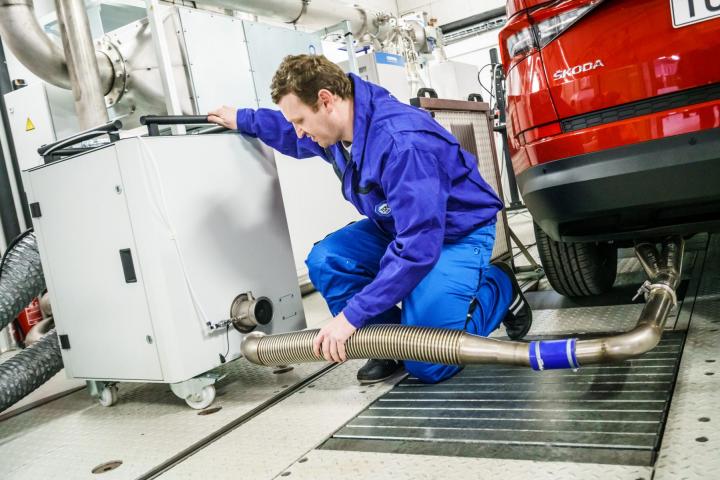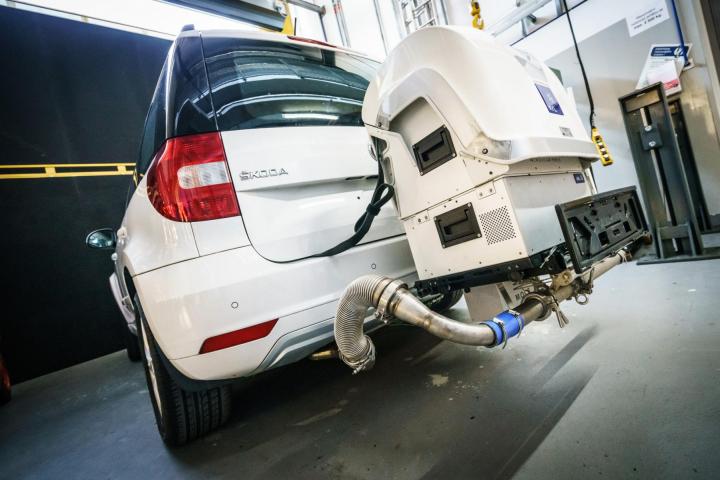
Although internal combustion engines are among the cleaner combustion devices, due to their intensive use, they have a large, often major, share in air pollution. Especially in cities. Modern diesel engines for road vehicles, manufactured in the last ten years or so, already emit less harmful particles than the surrounding air contains. Filtration is almost absolute. Unfortunately, some motorists drive with non-functional particulate filters (DPFs) or deliberately dismantle them, thus increasing the negative impact on the health of fellow citizens.
Total emissions are the sum of the emissions of all vehicles, or also the product of the average emissions of the vehicle fleet and the number of kilometers traveled. The relatively small number of dangerously modified vehicles have a significant share in total emissions. Irresponsible car operators thus significantly worsen the health situation. At the Centre of Vehicles for Sustainable Mobility at the Faculty of Mechanical Engineering, the efficiency of particle filters is being measured with similar instruments, such as the capture efficiency of veils and respirators. According to remote measurements performed by the ÚAMK, CTU and the Czech University of Agriculture for the Prague City Hall, in 2017 almost every tenth car lacked a particulate filter and the average particulate emissions of a new car with a non-functional filter were higher than the average emissions of older diesel cars.
"The results of the measurements confirm that the effect of the technical condition of the vehicle on particulate emissions can be significantly higher than the age of the vehicle. If we are to reduce total emissions from transport, we must either significantly reduce average emissions per vehicle or significantly reduce the number of kilometers traveled. If the air is to improve in our cities as well, we must reduce emissions during daily operation, not just on paper or under idealized laboratory conditions. By replacing new low-emission internal combustion engines with electric cars or clean fuels such as hydrogen, we will save as much as possible the emissions that new engines produce, which is, even if they are in order, very little. This will not save us, moreover, such changes cost time and money, "says Professor Michal Vojtíšek, who has been trying to reduce emissions for the last twenty-four years.
Together with Professor Vojtíšek, we appeal to motorists not to wait for some drastic restrictions and measures and to reduce emissions voluntarily themselves. "Those of you who do not have the engines in perfect condition, smoke from them, lack a catalytic converter or particulate filter, or diagnostics report emission defects that do not yet show in the operation of the vehicle, please put the cars in order. If this is not possible immediately, at least drive such cars as rarely as possible to larger cities. We ask you to limit aggressive acceleration, heavy braking and very fast driving in urban areas. Very high emissions are also emitted after starting a cold engine before the catalytic converter warms up, with longer engine idling or slow coasting. If irresponsible motorists do not get their engines in order, administrations of larger cities will have to significantly reduce the intensity of road traffic in order to protect the health of their inhabitants. All drivers will mind this a lot. A better solution for everyone is to repair or replace that every tenth car which is not in order, "concludes Professor Vojtíšek.
